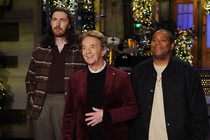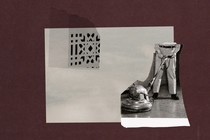The history of science and philosophy of science and technology | as modern myths – prevue western history of science
5 min read
Western science has gradually developed as a unique way for human beings to study nature, and in this process has inextricably connected with myth, philosophy, religion and art, because it is these cultural symbols that exercise this power on the part of science when it does not acquire its own full interpretation of the world, no matter whether they are temporary or permanent. This paper attempts to start from one’s own crude understanding of Western nature studies and show that science actually acts as a modern myth in terms of its interpretive function.
The history of science is a part of the history of natural study in a broader sense. If Western science can be traced back to ancient Greece and even prehistoric times, the terms related to “nature” encountered in this process can at least include “natural science”, “natural theology”, “natural philosophy”, “deism”, “natural Chronicles” and so on. A detailed explanation of the connotations and connotations of each term and their relations to each other, though only an afterthought, will provide a relatively clear view of how Western science, which we call “natural science”, may have been born and developed to its present day. But by extension, each of these terms reflects a relationship between man, nature and the supernatural, and it is only in such a relationship that each term gains its original meaning. We will draw on these two clues to sketch a general picture of the history of Western science.
Before the Miletus “invented” nature, according to Homer’s epic, humans and gods actually lived in a common world, which can be understood from at least three aspects: first, these mythological figures in addition to the characteristics beyond man, also have typical human characteristics, in both good and bad ways; Secondly, the mechanism of the operation of the common world is mainly explained by the gods. The naming and changes of things need to rely on a certain or several gods. In this way, human beings get to know the world. Third, this common world is open, and human beings and gods can communicate with each other, even transform, and even appear half-human and half-gods.
When the Greeks first withdrew the power of interpretation from the gods, Western science took the first step, and its three characteristics, “pursuing mathematics”, “accepting the law of nature” and “relying test”, also had a traceback source. And the “scientific revolution”, usually called Newton as the end point, was exactly the first time to integrate these three perfectly. To “pursue mathematics” means to describe the world in terms of numbers and geometry, which can be found in the Pythagorean school; To accept the laws of nature means to believe that the world can be explained by axiomatic inferences such as the Elements; The “dependency test” implies the need to act like an astrologer, who must be able to prove himself through events that occur in the future. These characteristics can be seen in the Greeks of different periods and regions, who are often collectively referred to as “natural philosophers”, although their motives, methods and conclusions for nature research rarely coincide.
An antilla machine found in a shipwreck in ancient Greece, restored by Tsinghua Science Museum, is believed to be the first computer used to predict the movement of celestial bodies.
Animal Liberation Before the emergence of Christianity, the core of the structure of “man-nature-supernatural” was actually human. When Christianity and Greek civilization met, the “supernatural” changed from the original pantheism and polytheism to monotheism, and “God” replaced “man” as the core of this structure, and the relationship between “man” and “God” became the most important one. Therefore, how to correct the position of “nature” and its related “natural philosophy” and “natural history” in the structure of “man-nature-God” has become an important problem since the Middle Ages. From this, a series of tension and even contradiction problems have been derived, such as rationality and belief, philosophy and theology, science and religion. Clarifying this process requires a good grasp of history, although there is only one result, which is that nature, through the cloak of theology, gained the legitimacy of research and made great progress, eventually driving out all supernatural explanations, including God, Whether or not this result is the will of the people who have tended throughout history to be scientists (mathematicians), philosophers, and religious believers, This process also gave birth to “natural theology” (involving St. Thomas Aquinas, John Ray, William Derham, William Paley, etc.) and “Deism” (involving Lord Herbert of Cherbury, John Lock, David Hume, etc.) and has been influential to this day.
Since the birth of the Society of Jesus in Europe, a special group of Jesuits has assumed an important role in the education, research and dissemination of science, which also makes the relationship between science and religion confusing.
But the “reductionist” and “mechanistic” character of modern science is not entirely dependent on Newton, and we must look for more people to blame — such as Descartes and Galileo. Their connection with Christianity also needs further study, for example, whether Descartes’ strict distinction between primary and secondary qualities is related to Christianity’s strict distinction between sacred and profane, and how Galileo’s enthusiasm for mechanical experiments is related to natural theology. Up to Maxwell in the 19th century, or even Einstein in the 20th century, it is hard to say that these scientists have completely escaped the human-nature-supernatural structure. In fact, replacing the word “god” with the word “scientist” in the third paragraph is basically unambiguous, implying that science is just a new myth invented by modern people for themselves.
Today, as science expands its territory in the name of the study of nature, there seems no reason to refuse to let it rest where it may, thus further shaping the myth of modern man. But the end result may be to ignore or even dethrone other value systems, and eventually make the whole world actually “double charm” for those who do not grasp the scientific discourse accurately. This should be avoided, so that we can establish a future-oriented science and a reasonable relationship between “man and nature”.






